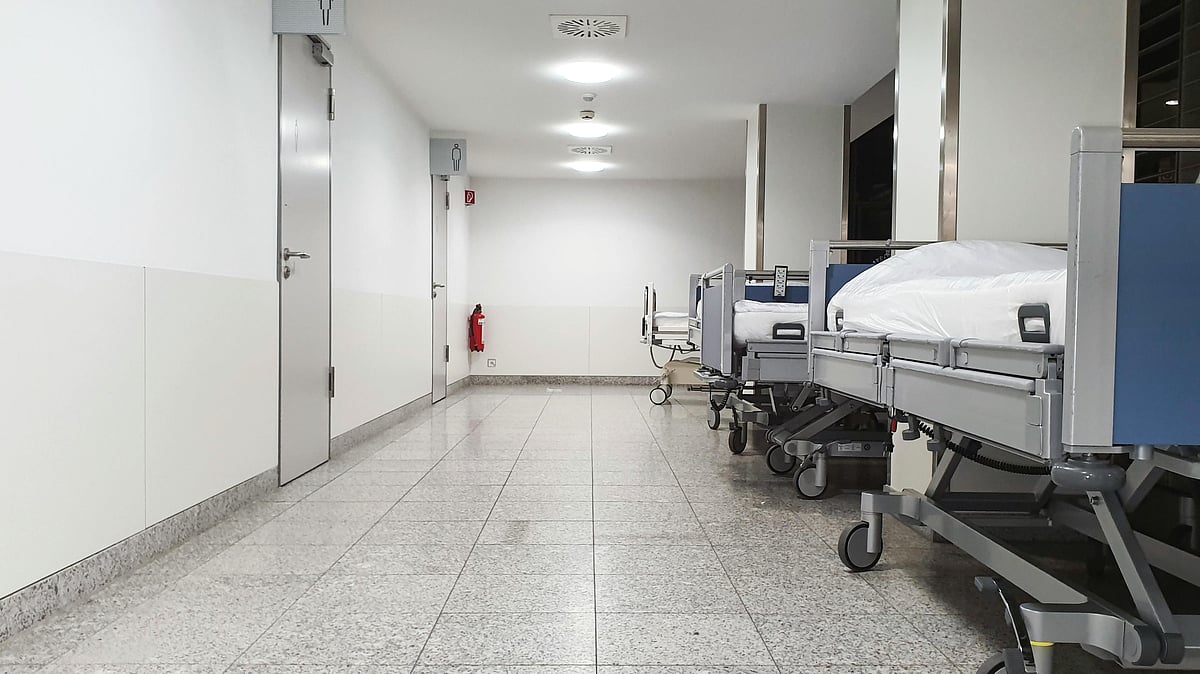Mumbai: BMC’s Hospital Privatisation Plan Sparks Public Health Outcry
While civic hospitals have traditionally served the underprivileged, health activists and citizens fear that such moves could make public healthcare inaccessible and unaffordable for the poor.

Pexels Image
Mumbai: In recent months, the Brihanmumbai Municipal Corporation (BMC) has floated several tenders to outsource key health services—ranging from cooked food supply to advanced medical facilities like cath labs to private agencies.
While civic hospitals have traditionally served the underprivileged, health activists and citizens fear that such moves could make public healthcare inaccessible and unaffordable for the poor.
Public–Private Collaboration Model Expands Across Hospitals
The civic body has proposed a public–private partnership (PPP) model to set up dialysis units, cath labs, MRI and CT scan facilities, and a blood bank across several peripheral hospitals, including:
Rajawadi Hospital (Ghatkopar)
MT Agarwal Hospital (Mulund)
Dr Ambedkar Hospital (Kandivli)
Bhabha Hospitals (Bandra and Kurla)
Bhagwati Hospital (Borivali)
Additionally, tenders floated in March show that the 581-bed Shatabdi Hospital and Medical College in Govandi will allocate 70% of its beds to paying patients and only 30% to civic referrals at concessional rates. Three bidders participated, and the BMC has nearly finalised the winning bid.
At the 410-bed Lallubhai Compound Hospital in Mankhurd, 260 beds will be reserved for patients holding orange or yellow ration cards, while 150 beds will remain available for civic-referred patients.
Activists Question PPP Outcomes and Accountability
According to Dr. Abhay Shukla, National Co-convenor of Jan Swasthya Abhiyan, over 20 PPP projects are already operating within Mumbai’s municipal health network, covering ICUs, diagnostic centres, dialysis units, and maternity homes.
“Yet, there is no independent evidence that these PPP arrangements have improved the quality or accountability of health services,” Dr. Shukla said.
‘Aspatal Bachao’ Movement Gains Momentum
Concerned by the growing privatisation trend, around 25 organisations—including BMC health worker unions—have united under the banner of Aspatal Bachao, Nijikaran Hatao Kriti Samiti (ABNHKS) to demand an immediate halt to the outsourcing of public hospitals and services.
The coalition has called for urgent recruitment drives to fill vacant posts and for strengthening of public health facilities to ensure equitable, quality healthcare for all Mumbaikars.
“Six major BMC hospitals are being handed over to private companies through PPP arrangements. This will replace free public services with paid care, hitting the poor and marginalised hardest,” said Girish from the Kamgar Ekta Committee.
He added that the BMC continues to replace regular staff with outsourced and contractual workers, eroding both service quality and job security.
“It’s a deliberate strategy—weaken the public system through neglect, then hand it over to private operators. The result is restricted access to free care and declining service quality,” he said.
Studies Reveal Lapses in PPP Health Projects
A senior member of ABNHKS cited a recent study of healthcare PPPs in Mumbai and Pune, revealing serious lapses such as underqualified doctors in outsourced ICUs, inflated diagnostic charges, poor monitoring, and political interference in contract awards.
“These projects often prioritise profit over public welfare, with patient costs rising up to 25 times higher than civic hospital rates,” the member said.
Vacancy Crisis Undermines Public Healthcare
Supporters of public healthcare argue that the BMC’s justification of limited hospital capacity is misleading. According to Praja Foundation’s 2024 report, civic hospitals face alarming staff vacancy rates—46% among doctors, 26% among nurses and paramedical staff, and 42% among labour staff, resulting in an overall 36% shortage within the health department.
“There are around 975 vacant medical posts in the BMC, while Mumbai’s medical colleges produce about 1,200 MBBS and 1,000 MD/MS doctors annually. There are enough qualified professionals to fill all positions,” said an ABNHKS representative.
Call for Political Accountability Ahead of Elections
The ABNHKS coalition has demanded that the BMC withdraw its ‘pernicious policy’ of privatisation and contractualisation, alleging that it benefits only contractors, corrupt officials, and politicians.
With civic elections approaching, healthcare is expected to become a major campaign issue.
“All political parties and candidates will be asked to declare their stance on public health and privatisation,” said Girish.“Those who support public healthcare will be recognised, while those who don’t will be exposed as enemies of public health and the people will respond in the elections.”
RECENT STORIES
-
-
-
-
-